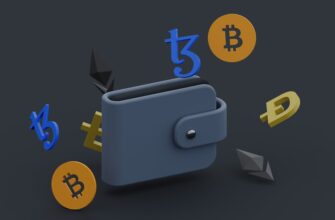🚀 USDT Mixer — Ultimate Privacy, Zero Hassle
Take full control of your USDT TRC20 transfers with our secure mixing service. 🧠
No registration. No personal data. Just clean, private transactions 24/7. 🌐
Transparent fees starting from only 0.5%.
- Why Bitcoin Privacy Matters More Than Ever
- Essential Features of a Truly Private Bitcoin Wallet
- Top 5 Bitcoin Wallets for Maximum Privacy (2023)
- 1. Wasabi Wallet (Desktop)
- 2. Samourai Wallet (Mobile)
- 3. Sparrow Wallet (Desktop)
- 4. Electrum (Desktop/Mobile)
- 5. ColdCard (Hardware)
- Critical Privacy Mistakes to Avoid
- Advanced Privacy Techniques
- FAQ: Bitcoin Wallet Privacy Explained
- Final Verdict
Why Bitcoin Privacy Matters More Than Ever
While Bitcoin transactions are pseudonymous, they’re recorded permanently on a public ledger. Without proper privacy measures, your financial activity can be tracked, analyzed, and potentially exploited. Choosing the best Bitcoin wallet for privacy isn’t just about security—it’s about reclaiming your financial sovereignty in an increasingly surveilled digital economy.
Essential Features of a Truly Private Bitcoin Wallet
Not all wallets prioritize confidentiality. Look for these non-negotiable features:
- Non-Custodial Control: You own your private keys—no third-party access
- Open-Source Code: Transparent development allows community security audits
- Tor/VPN Integration: Masks IP addresses during transactions
- Coin Control: Manages UTXOs to avoid address clustering
- No KYC Requirements: Zero identity verification for setup
Top 5 Bitcoin Wallets for Maximum Privacy (2023)
1. Wasabi Wallet (Desktop)
The gold standard for privacy enthusiasts. Its built-in CoinJoin implementation (Chaumian CoinJoin) anonymizes BTC by mixing transactions with other users. Open-source and compatible with hardware wallets like ColdCard.
2. Samourai Wallet (Mobile)
Android-exclusive powerhouse featuring Ricochet (extra hop routing), Stonewall (obfuscated transactions), and Whirlpool CoinJoin. Includes stealth mode to hide the app icon.
3. Sparrow Wallet (Desktop)
Advanced interface with deep coin control, Tor integration, and support for Whirlpool/JoinMarket. Visualizes transaction trails to optimize privacy.
4. Electrum (Desktop/Mobile)
Veteran wallet with plug-in privacy: Integrates Tor and supports hardware devices. Use with Electrum Personal Server for full node privacy.
5. ColdCard (Hardware)
Air-gapped signing device for maximum security. Works with Wasabi/Sparrow for offline CoinJoin preparation. Immune to remote hacks.
Critical Privacy Mistakes to Avoid
- Reusing Bitcoin addresses (creates permanent spending history)
- Connecting wallets to centralized exchanges without Tor
- Ignoring UTXO management (small “dirty” coins reveal identity)
- Using custodial wallets or services requiring KYC
Advanced Privacy Techniques
Pair your wallet with these methods:
- CoinJoin: Anonymize coins through collaborative transactions (costs 0.1-0.3% fee)
- PayNyms: Samourai’s reusable BIP47 payment codes avoid address reuse
- Full Node: Run Bitcoin Core to validate transactions privately
FAQ: Bitcoin Wallet Privacy Explained
Q: Can governments trace private Bitcoin wallets?
A: While extremely difficult with proper techniques, sophisticated chain analysis can potentially de-anonymize weak setups. Always layer privacy tools.
Q: Are hardware wallets necessary for privacy?
A> Not essential but recommended. They isolate keys from internet-connected devices, adding critical security to privacy-focused software wallets.
Q: Is CoinJoin legal?
A> Yes, in most jurisdictions. It’s simply a transaction coordination method—like digital cash mixing.
Q: How does Tor improve wallet privacy?
A> It encrypts traffic and routes it through random nodes, hiding your IP address from peers and blockchain observers.
Q: Can I recover funds if I lose my private key?
A> No. Non-custodial wallets mean you alone control access—write seed phrases on steel backups stored securely.
Final Verdict
For uncompromising privacy, Wasabi and Samourai lead with integrated CoinJoin and military-grade features. Always combine your chosen wallet with Tor/VPN and coin control practices. Remember: In the blockchain era, privacy isn’t automatic—it’s engineered.
🚀 USDT Mixer — Ultimate Privacy, Zero Hassle
Take full control of your USDT TRC20 transfers with our secure mixing service. 🧠
No registration. No personal data. Just clean, private transactions 24/7. 🌐
Transparent fees starting from only 0.5%.








